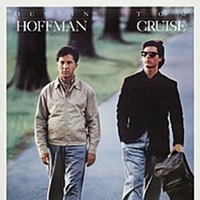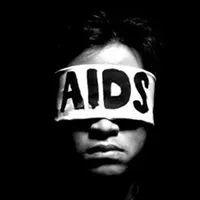Tuesday, May 24, 2011
feature June is the 30th anniversary of the discovery of HIV/AIDS
Posted By Mustang Sally, Mayor of Bang Town on Tue, May 24, 2011 at 3:15 PM
Thirty years ago, a mysterious sickness began killing people slowly. The first reported case of what is now known as HIV/AIDS, is hard to pinpoint, according to Fiercebiotechresearch.com.
Breakthroughs in genetics, drug delivery, vaccines, computer modeling and other disparate disciplines are all converging onto their target. Even recent vaccine failures have opened up new avenues of inquiry."This is a pivotal moment in HIV vaccine research," Alan Bernstein, executive director of the Global HIV Vaccine Enterprise, recently told Reuters. "The last five years have been the richest period in HIV vaccine research since the epidemic began. The question...now is how do we build on these scientific advances?" He added that cross-border and cross-discipline collaboration among scientists was crucial.Much work still needs to be done to rid the world of this modern-day plague that has cost so many lives, but it seems to be with renewed focus, AIDS research is moving forward. With antiretroviral combination drugs as treatment and possibly prevention, and a reinvigorated vaccine search, it is possible that HIV/AIDS could eventually go the way of smallpox into the dustbin of history.
While medical advances have been made over the last three decades, the social stigmas still exist. According to The Body.com, an AIDS/HIV resource website, in the 1980s, the CDC identified the "4H" groups — people most likely to contract HIV and AIDS.
"I don't know if you remember that the CDC had identified people at risk as the 'four Hs,' " says Jean Claude Compas, M.D., a Haitian family-practice physician in Brooklyn, N.Y. "It stood for "Haitians, hemophiliacs, homosexuals and heroin addicts."When, in 1983, the CDC recommended banning the "4H" groups from donating blood, it cast a social stigma over the Haitian community.
"Scientifically, it didn't make any sense," Dr. Compas says of the ban. Despite New York City health officials lifting Haitians from its own 4H high-risk group in 1983, federal agencies continued to bar them from blood drives for eight more years.
On April 20, 1990, when the U.S. ban was up for review, about 70,000 Haitian New Yorkers marched across the Brooklyn Bridge into lower Manhattan to protest what Dr. Compas calls the "terrible stigma" that was demonizing Haitian blood.
"The protest was very important for us," says Dr. Compas, who was a key organizer of the march. Today, he finds, "the stigma of AIDS is less, but still there," so the task of educating his community about prevention and treatment remains urgent.
Here in Mecklenburg County, County Commissioner Bill James makes no attempts to show tolerance for people with HIV or who have lost a loved one to the disease. Nearly two years ago, he angered the community and fellow commissioner Vilma Leake by calling her son a "homo" and then released a statement to the media that furthered his disdain of same-sex benefits.
"In justifying her position last night in public she used her son's 'lifestyle' and his death from HIV-AIDS to justify voting for benefits to allow individuals to use tax dollars to engage in the same behavior that resulted in her son's death.""It is akin to someone whose son is an alcoholic and died from the disease, using his death from drinking as justification to have the taxpayers pay for more booze."
"Her position was that her 'faith' demanded that she do this to support her son and his 'lifestyle' which she acknowledges killed him."
"In doing so, it is legitimate to ask her what 'lifestyle' and in particular whether her son was a homosexual.
Charlotte lost the Metrolina AIDS Project in 2009, an organization that provided free testing and other services. The local LGBT newspaper Q-Notes provided a timeline of the group's demise.
MAP has served thousands of Charlotte-area patients with HIV. Despite their legacy of good work, the organization also has a history riddled with internal struggles, financial difficulties and an uneasiness with public LGBT-affirmation.Fall 1985 — During the height of the AIDS crisis, six gay men make the decision to form an AIDS service organization to meet the needs of Charlotte area individuals contracting HIV.
July 16, 1986 — MAP’s articles of incorporation are filed with the North Carolina Secretary of State.
Aug. 1990 — Chaired by MAP board president Sister Mary Thomas Burke, the organization’s “Program Review Panel” rejects a gay-themed HIV prevention and condom-use advertisement. Depicting two young men draped in an American flag, a federal judge involved in a lawsuit over other local “Program Review Panels” said it was “difficult to explain” why MAP rejected the seemingly innocent ad.
July 8, 1991 — MAP’s board of directors votes no confidence in openly gay executive director John Conley and asks him to resign after he publicly acknowledged his sexual orientation at an AIDS Quilt exhibit in Charlotte. In a later interview with Q-Notes, Conley claims he was told not to use the word “gay” in a MAP newsletter. Following Conley’s ouster, three MAP staffers and four volunteers also leave the organization.
1993 — A routine United Way review and audit reveal serious internal problems and financial difficulties for MAP, including deficiencies in policy and procedure, inadequate documentation and record-keeping of Ryan White CARE Act-funded programs and services and inappropriate coordinate of care. At the time, funding from the Regional HIV/AIDS Consortium is put on hold.
Dec. 1993 — MAP treasurer Stephen O’Shields is arrested and charged with embezzling nearly $118,000 from the organization.
Sept. 1994 — Stephen O’Shields is sentenced to six months in jail and ordered to repay the money he embezzled from MAP.
Oct. 1996 — Infighting and disagreements among staff result in the resignation of MAP Executive director Barbara Rein and the termination or resignation of a half-dozen other employees including three department directors.
Feb. 2008 — Carolina Celebration, a primarily gay men’s philanthropic organization, announces it will quit contributing to MAP amidst concerns the AIDS organization is mismanaging funds and moving away from serving the gay community. Carolina Celebration had contributed tens of thousands of dollars to MAP each year.
Jan. 2009 — MAP comes close to closure when it is revealed the organization’s Ryan White CARE Act funding is put on hold pending “a routine review.” MAP officials say the funding hold stemmed partly from organizational problems surrounding the opening of MAP’s Metrolina Care Network Clinic and a failure to get approval for Medicare and Medicaid reimbursements.
August 2009 — MAP announces that Dr. Jose Diaz will become executive director and that the Health Resources and Services Administration has approved a recovery plan for the organization, which will aim to restructure the group’s service delivery toward a clinical care approach.
Fall 2009 — Disagreements among staff and financial problems lead to staff resignations, lay offs and the decision to shutter MAP’s doors.
According to the 2010 Mecklenburg County Health Department Community Report, the county has a 16.6-percent HIV rate, nearly 7 percent higher than the statewide rate of 10.1 percent.
Speaking of...
-

Top 5 Casino Movies
May 21, 2020 -

Going Gaga Over Movies
Sep 7, 2018 -

Summer Movie Wrap
Sep 1, 2018 - More »
Comments (7)
Showing 1-7 of 7
Latest in Bang Town
More by Mustang Sally, Mayor of Bang Town
-

Real lap dances, fake money
Dec 15, 2011 -

Is there a sex life after a postitive HIV test?
Dec 15, 2011 -

Want to live a happy life? Have sex as a senior citizen
Dec 13, 2011 - More »






